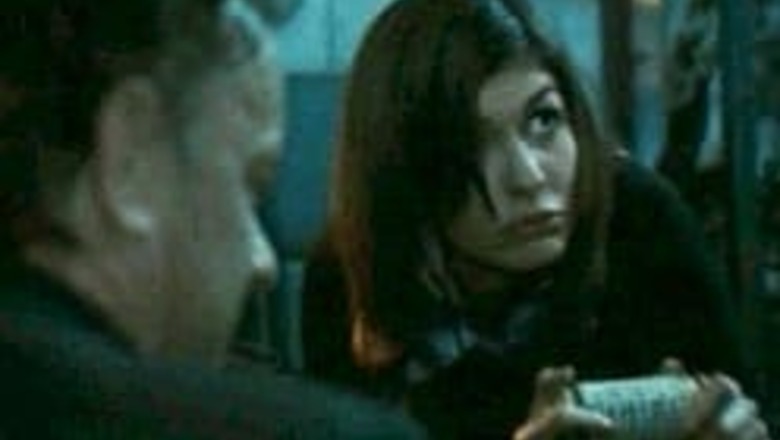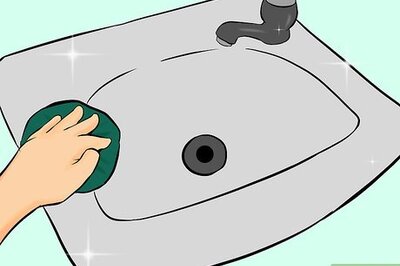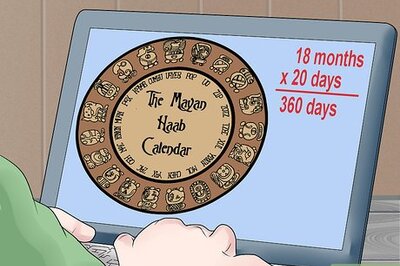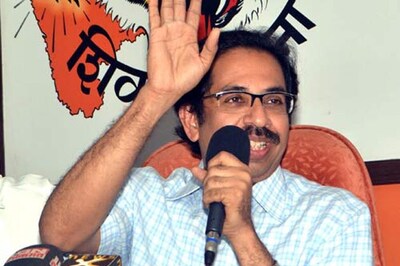
views
Dan Brown's theological scavenger-hunt mystery novel The Da Vinci Code may be the pop version of a novel of ideas, but that doesn't mean the ideas don't pop.
The book does for Christianity what "JFK" did for the Kennedy assassination -- portraying it as the ultimate cover-up, which the book then unravels.
Brown, a populist trickster metaphysician, draws us into a nexus of puzzles and clues -- Fibonacci number sequences, anagrams -- that are grounded in tantalising artifacts from the real world.
The novel even has its own version of the Zapruder film, the piece of evidence that's mystical in its power because we can all see and evaluate it with our own eyes: Leonardo da Vinci's 1498 mural of The Last Supper.
Is that wilting feminine figure to Jesus' right not the apostle John but, in fact, Mary Magdalene? And, if so, was she Jesus' wife, the progenitor of his bloodline?
Brown's hero, Robert Langdon, is a Harvard professor of "symbology," and in Ron Howard's dutiful, dogged, rather somber adaptation of The Da Vinci Code, Tom Hanks plays him in a dark suit and lank, longish hair -- the dictionary image of a disheveled but still sexy academic.
He's also been given a case of claustrophobia, a Hitchcock tic that offers Hanks a hook for his performance.
I only wish the real hook had been Langdon's ideas. He has been called a cross between Indiana Jones and Joseph Campbell, but Hanks, playing this prof on a crusade, has to sandwich Langdon's brainy passion into the crevices between mediocre action scenes. He looks glum and, frankly, a little lost.
In Paris, Langdon is summoned to the Louvre, where a curator he was scheduled to meet has been found murdered, his naked body posed on the floor in imitation of Leonardo's Vitruvian Man, with a bloody pentagram scrawled on his chest.
A police captain (Jean Reno) thinks Langdon is the killer, and thus begins an all-night pursuit in which Langdon, teaming up with a cute French police cryptologist (Audrey Tautou, muffled by the thickness of her accent), sets out to prove his innocence by literally unlocking the Holy Grail keystone, a kind of religious bicycle lock whose "combination" is encoded in a series of churches and tombs.
What's revealed along the way is that the truth of Christianity has been concealed -- not just the facts of Jesus' life but the nature of Christian faith, its links to pagan goddess worship, to the "sacred feminine."
That reality, says The Da Vinci Code, has been hidden for a millennium by the Catholic Church but also guarded, as a sacred secret, by the Priory of Sion, a noble shadow cult whose famous members include Leonardo and Isaac Newton.
PAGE_BREAK
As a novel, The Da Vinci Code hung speculative theology on a routine, if page-turningly rendered, cloak-and-dagger chase plot.
It's no surprise that Howard plays up the thriller mechanics, which already felt like a movie on the page -- the escapes and showdowns, the creepy stalker violence of Silas (Paul Bettany), a self-flagellating albino monk hitman who represents Opus Dei, the Catholic sect that's portrayed as intent on destroying the hidden revelations of its faith.
The surprise, and disappointment, of The Da Vinci Code is how slipshod and hokey the religious detective story now seems.
It's a challenge, to be sure, to cram Brown's litany of signs and symbols, his intricate meditations, into a two-and-a-half-hour film, but Howard, working from Akiva Goldsman's script, fails to build intellectual excitement into the quest.
He uses cheesy digitised flashbacks, rarely trusting the dialogue to evoke history, and he seems faintly rushed and embarrassed each time the movie grows talky, as if he were worried that the breathless theology wouldn't hold us.
A crucial change from the book is that Langdon has been made into a skeptic, a fellow who doesn't necessarily buy that official Christianity is a lie. This is a sop to the film's critics (i.e., the Catholic Church), but it feels cautious, anti-dramatic.
Yes, a soupcon of research reveals that the Priory of Sion is a hoax invented in 1956, and surely it can't be proved that Jesus and Mary Magdalene were ever intimate (though Martin Luther believed so). But what we want from a film of The Da Vinci Code is the fervor of belief.
It's there only in Ian McKellen's playful, crusty turn as Leigh Teabing, the scholar who hobbles around on twin canes, spouting happy rhetoric about the meaning of the Grail.
As a novel, The Da Vinci Code has a resonance that lingers. It may be less history than hokum, but it's a searching product of the feminist era, when even many true believers have grown weary of the church as an instrument of moral reprimand and male dominion.
The film is faithful enough, but it's hard to imagine it making many converts.




















Comments
0 comment